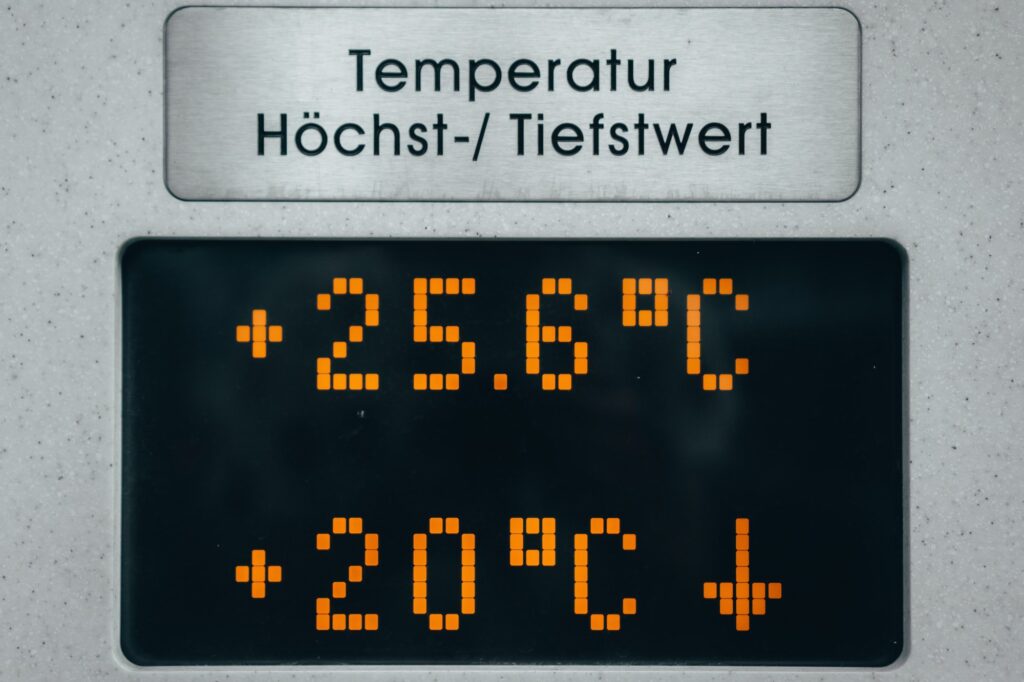Temperature data is one of the most important data types for many industries, but traditional data collection was manual and time-consuming. Thanks to the advent of wireless temperature sensing, data collection is now faster, more accurate, and easier than ever before.
What is Wireless Temperature Sensing?
Wireless temperature sensing is the act of collecting temperature data using sensors that are equipped with wireless transmitters. This technology allows for more efficient and accurate data collection, resulting in better information about the area being observed.
All system components are connected wirelessly, so there are no wires to maintain or repair throughout the system’s lifetime. The system will also alert users when problems occur, allowing them to fix issues promptly before they escalate.
Advantages of Wireless Temperature Sensing
Wireless temperature sensing offers several advantages over traditional wired temperature sensors, including:
Accuracy
Wireless temperature sensing is faster and more accurate than wired systems. Wireless sensors can take readings as frequently as every second, which means data is always up to date. This is especially useful for industries that rely on high-speed data processing.
Convenience
Wireless sensors can communicate with receivers wirelessly rather than running wires from the sensor to the monitoring device, making them much easier to install. This also makes them more flexible, as they can be placed in locations where traditional wired sensors wouldn’t be feasible.
Minimal Human Interaction
Similar to other wireless technologies, data collection with a wireless temperature sensor is only limited by the range of the receiver and any obstacles in its path. This makes it ideal for remote locations, which would usually be difficult to access otherwise.
Data Transmission
Another major advantage of a wireless temperature sensor is that its data can be transmitted in real time. This can save technicians valuable time and resources when identifying or resolving problems in a timely manner.
Ease of Use
Wireless temperature sensors are typically very easy to use, as they usually require no special training or equipment. This makes them a good choice for companies or organizations that need temperature data but don’t have the resources to collect it manually.
Applications of Wireless Temperature Sensing
As wireless temperature sensors are becoming more popular, they are being used in various industries to monitor the temperature of many different objects or locations.
Food & Beverage
The food industry is one of the most common users of wireless temperature sensors. The ability for these devices to take readings very frequently makes them ideal for avoiding food spoilage.
Industrial Manufacturing
Wireless temperature sensors are widely used in industrial manufacturing applications. They monitor the temperature of objects such as ovens, furnaces, or any other piece of large machinery that would need to be accessed frequently. This allows technicians to monitor the status of equipment on site.
HVAC Monitoring
A common type of commercial application for wireless temperature sensing is HVAC systems. In such applications, wireless sensors monitor the temperature inside buildings. This allows technicians to keep tabs on the temperature inside structures without having to visit them manually.
Other Applications
Wireless temperature sensors are also used in a variety of other applications as well. They are being installed to monitor the temperature of power systems, along with greenhouses or storage facilities.
Revolutionizing Data Collection
Wireless temperature sensing has revolutionized the way that we collect data. It’s faster, more accurate, and more flexible than traditional methods. It’s the best option available for collecting various types of environmental data on a large scale. And thanks to its ease of use and wide range of applications, it’s likely to continue to play an important role in our lives for years to come.
The world is changing, and so are the innovations that keep us moving forward. The Henry Bernick Entrepreneurship Centre at Georgian College offers support and resources in entrepreneurship, business innovation, R&D, and business mentorship to help train, connect, and mentor new business innovation. We can help you take your business to the next level. Contact us today to learn more.










